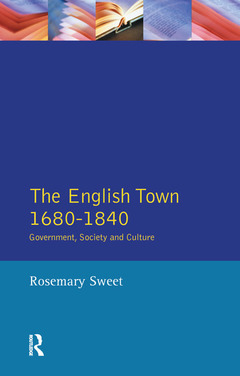Description
The English Town, 1680-1840
Government, Society and Culture
Themes In British Social History Series
Author: Sweet Rosemary
Language: English
Subject for The English Town, 1680-1840:
Keywords
Agriculture; Business; court; Employment; leet; Government; peter; Leisure; borsay; Town planning; middling; Aristocrat; sort; Church; eighteenth; Civic Culture; century; towns; Young Men; Law; urban; John Marsh; Poor; Tight Rope Walking; Crime; English Town; Gas; Court Leet; Liverpool; Quo Warranto Proceedings; Poor Law; Town Halls; Franchise; Unreformed Parliamentary System; Legal; Assembly Room; Disease; Select Vestries; Education; Vice Versa; Labourers; Holywell Music Rooms; Schools; Parliamentary Boroughs; Workhouse; Middling Sort; Gardens; Labouring Sort; Literacy; Civic Elections; Music; Stana Nenadic; Race; Architectural Pattern Books; Theatre; Urban Radicalism; Architecture; Urban Middling Sort; Unincorporated Towns; Central Government
111,58 €
Disponible chez l'éditeur (délai d'approvisionnement : 14 jours).
Add to cart· 13.8x21.6 cm · Relié
Résumé
/li>Sommaire
/li>Lectorat
/li>Biographie
/li>Commentaire
/li>
- Contains an authoritative account of urban politics - the structures and institutions of authority, their purpose and function, the realities of civic administration, and the general movement for reform that climaxed in the Municipal Corporations Act of 1835.
- Considers the aftermath of the 1835 Act - doing justice to the transition from the Georgian to the Victorian town which is often left under-explored.
- Reviews a number of historiographical debates on urban issues - among them the emergence of the middle class, the place of religion in daily life, the urban renaissance, and the nature of urban identity.
- Challenges the conventional idea of London's dominant influence over the cultural life of provincial towns, and concludes that provincial urban culture was a much str




